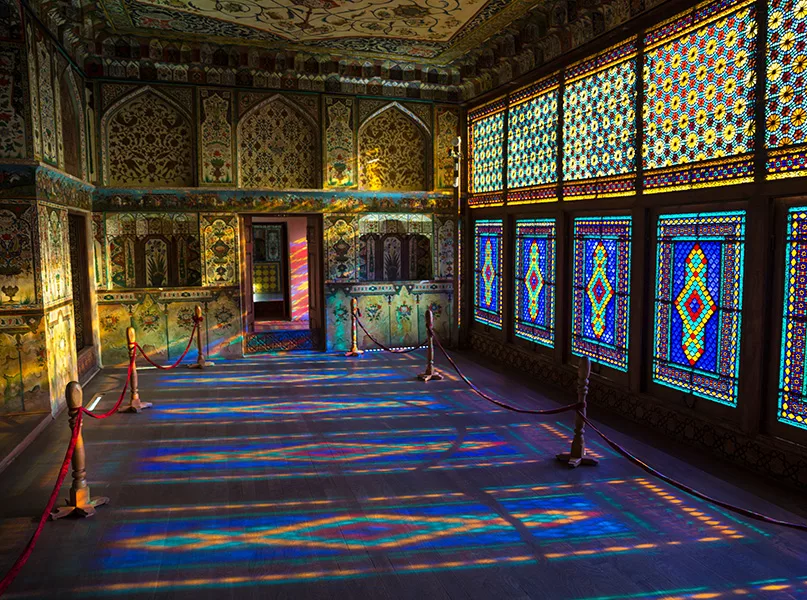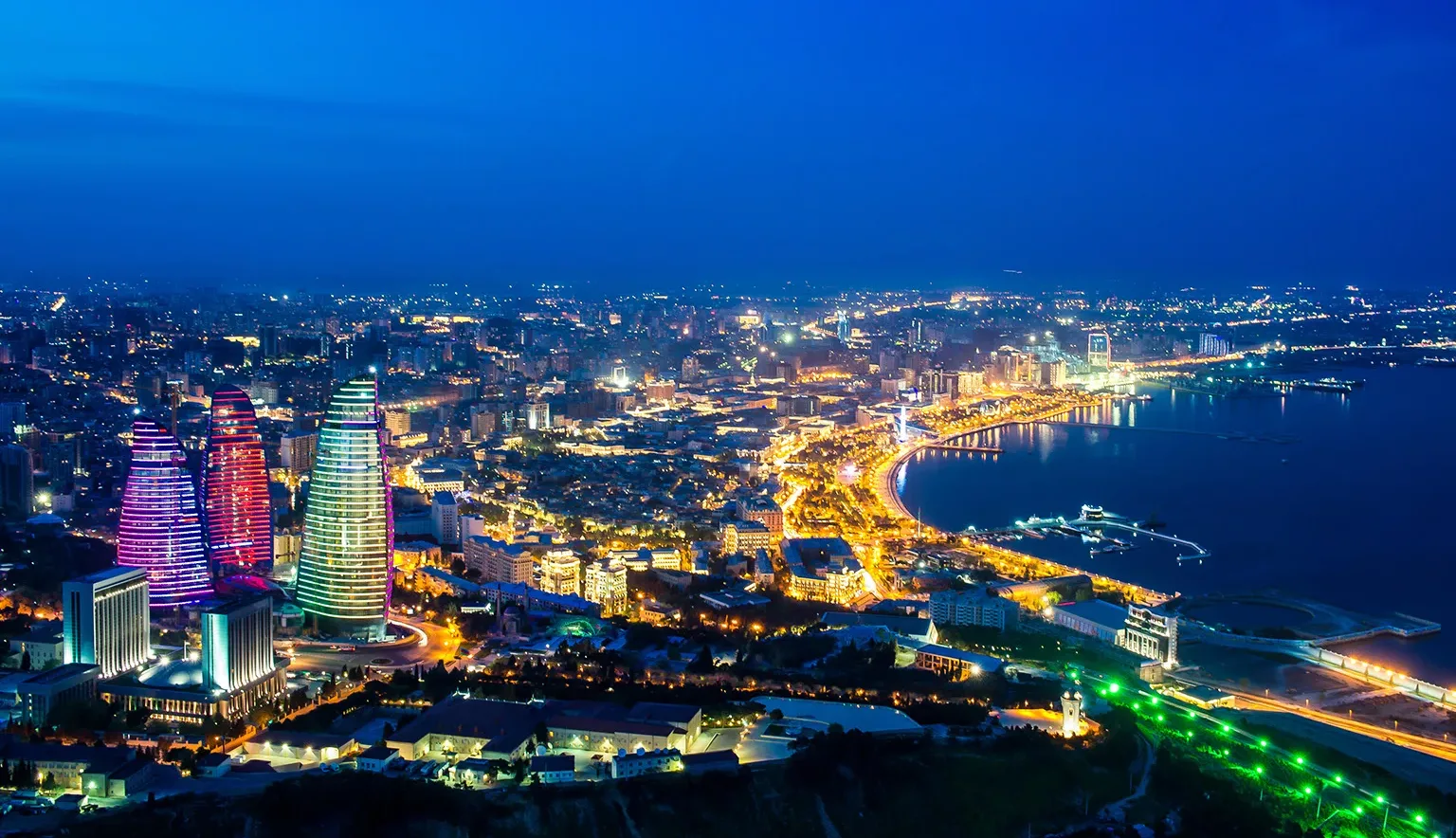AZERBAIJAN TOURISM BOARD
Q&A WITH FLORIAN SENGSTSCHIMD, CEO, ATB
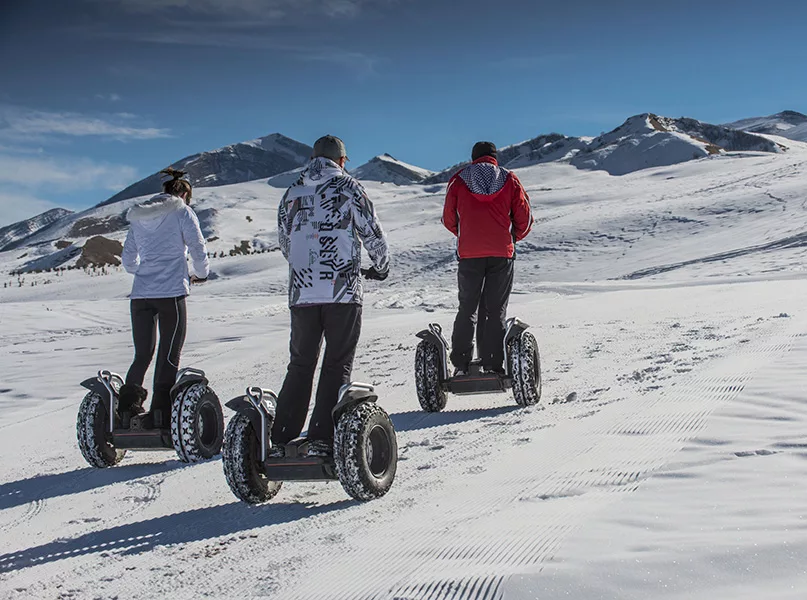
Baku appeals to a wide array of travellers. History enthusiasts are drawn to its UNESCO World Heritage Sites and ancient marvels like the Shirvanshah’s Palace and Maiden Tower, whilst art and architecture lovers are captivated by its modern buildings. Families can delight in attractions like the Kinderland entertainment centre and scenic boat rides in Little Venice. Nature lovers can escape to the sandy beaches of the Caspian Sea or the mesmerising mud volcanoes. Gourmands can savour the delectable Azerbaijani cuisine, while wine aficionados can explore the city’s burgeoning wine industry. Adventure seekers can indulge in water sports or hike in national parks, while luxury seekers can unwind in 5-star spas and hammams.
In essence, Baku welcomes everyone, from solo travellers and history buffs to families and luxury seekers.
What is your branding strategy for Baku, how do you market and promote the city?
FS: Our strategy emphasises Azerbaijan’s rich tapestry of culture, history, and modernity. We focus on amalgamating the city’s historical legacy with its modern-day allure. Azerbaijan places significant emphasis on tourism development. Through a multifaceted approach, we aim to elevate tourism-generated revenue and spotlight Baku’s potential as a compelling tourist destination.
The cosmopolitan capital of Baku boasts a tapestry of city experiences, from museums and galleries to chic bars with local wines and delicacies to an array of restaurants with traditional and international cuisines, as well as countless meetings, incentives, conferences, and exhibitions (MICE) offerings. With its well-equipped resources and world-class infrastructure, Azerbaijan can host events of all scales. It features the 5-star Baku International Airport, a plethora of chain hotels, versatile venues, and facilities like the Baku Congress Centre and the Heydar Aliyev Centre, which includes museums, exhibition complexes, and multimedia conference rooms for international events.
We have reactivated collaborations with international hotel chains, including recent openings of The Ritz-Carlton, Winter Park Baku, and Mercure Baku. Such partnerships emphasise luxury, comfort, and global standards. We also aim to showcase the country’s intangible treasures. Baku’s rich culinary heritage, especially the winemaking tradition, is another aspect we highlight. Visitors can indulge in wine tastings at local bars and explore the unique grape varieties we possess.
Our promotional activities include showcasing both the historical hotspots and the modern architectural wonders of Baku. We also emphasise the city’s safety, family-friendly attractions, and wellness facilities, including the traditional hammam culture and the vast culinary landscape. By interweaving these elements, we position Baku as a destination to visit and an experience to cherish.
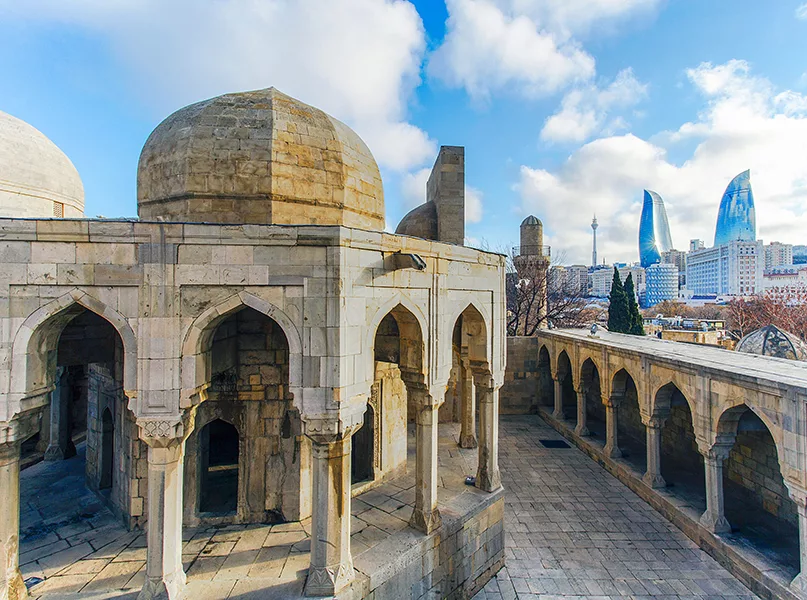
What is the sustainable tourism approach for Azerbaijan, and what eco-friendly travel experiences does the country offer?
FS: We’re deeply committed to fostering sustainable and eco-friendly travel experiences, showcasing Azerbaijan’s distinct and rich heritage. Our initiatives are broad and diverse, aiming to offer immersive and authentic experiences.
In line with our commitment, we have crafted and implemented an action plan for advancing sustainable tourism in Azerbaijan. We aim to enhance the regulatory framework by introducing sustainability standards to the industry and acknowledging sustainable practitioners through certification. Taking a proactive approach, we are currently embarking on a comprehensive destination audit, beginning with the northern region of Azerbaijan. This initiative allows us to scrutinise the current situation and devise a meticulous action plan, ultimately working towards establishing a sustainable ecosystem in the area.
We actively involve local communities in creating and implementing tourism experiences, providing economic benefits and opportunities for residents. Supporting locals and meeting their needs will sustainably generate a baseline for the value of tourism. Since locals create the destination and make it attractive to the whole world, “local” will dominate our continued tourism strategy.
This is why we started the Slow Food Travel programme in 2021, to honour and preserve the age-old methods and products that are in danger of extinction and connect local producers with hotel and restaurant chains. Additionally, we are enhancing our focus on outdoor and adventure activities, with a keen interest in developing winter tourism.
For instance, the Shahdag Mountain Resort has recently expanded its facilities and infrastructure to welcome more winter enthusiasts. Moreover, together with industry partners, we have developed joint initiatives over the years. Join us on well-developed hiking routes and explore birdwatching nationwide.
Birdwatching in Azerbaijan is a rewarding experience with over 400 bird species, including endemic ones like the Caucasian snowcock, making it an exciting destination. Nature reserves like Gizil Aghaj National Park, Shirvan National Park, and many more are hotspots for bird lovers.
Hiking routes passing through Khinalig village will take you to witness the newly UNESCO-inscribed cultural landscape of Khinalig and the ‘Köç Yolu’ transhumance route. The village is located in the Caucasus Mountains on a steep mountain peak nearly 2,200 metres from sea level. Having historically practised transhumance, every year when the season changes, thousands of Khinalig families still roam between the mountainous lowlands along the so-called ‘Köç Yolu’ seasonal migration route.
Central to our strategy is the development of sustainable and responsible tourism. We’re actively working on creating new hiking trails in the south and north of Azerbaijan, which are set to open to the public in 2024 in addition to the existing ones. We are also introducing a range of eco-friendly activities, from butterfly watching and olive tree route developments to new camping zones. Cultural and infrastructural renovations are underway in various regions, including Khinalig, Nakhchivan, and Sheki. A German heritage route in Azerbaijan is in the final stages of development, promising immersive cultural experiences.
Our commitment to sustainability is further echoed in our partnership with the World Travel & Tourism Council’s ‘Hotel Sustainability Basics’ initiative, aiming to reduce the environmental impact of our hospitality sector and involve as many hotels as possible in this transformative journey.
We have also initiated the Rural Guesthouse Programme to cultivate a network of sustainable rural accommodations, set to provide valuable resources and enrich the local tourism sector, emphasising our dedicated efforts to reshape Azerbaijan’s global image from solely an oil-rich destination to one that conscientiously preserves and showcases its invaluable resources and traditions.
In essence, our varied initiatives, from sustainable food experiences to innovative tourism projects and responsible accommodation practices, all represent Baku’s holistic approach to offering rich, sustainable, and eco-friendly travel experiences, inviting the world to ‘take another look’ and discover Azerbaijan’s commitment to sustainable and responsible development.
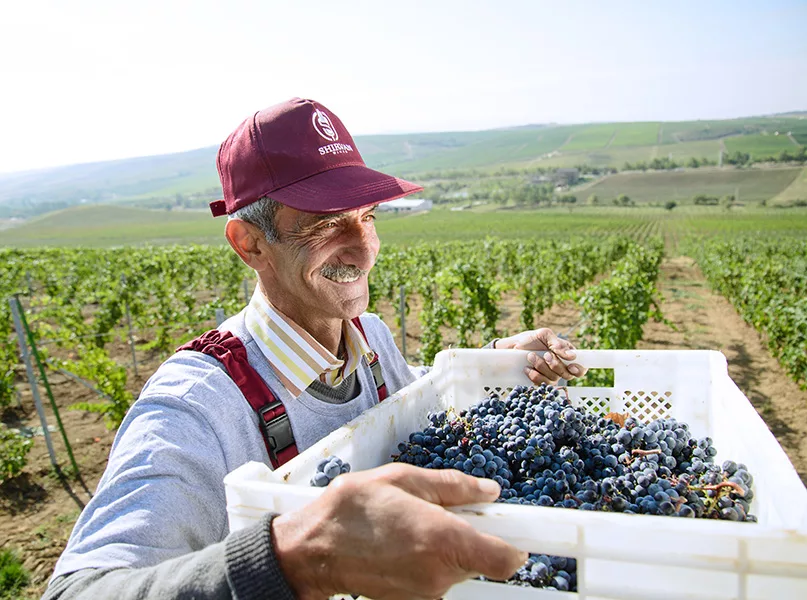
While the southern regions boast a pleasant mild climate, just a short drive from Baku, you can experience the beauty of our northern ski resorts. The journey from Baku to the north unveils picturesque landscapes, from the world’s lowest national capital to our highest peak. Along the way, you can explore the historic Chirag Gala fortress, meet the unique ethnic group in Khinalig village, or enjoy an array of winter activities at our mountain ski resorts.
The rising popularity of our winter resorts is undeniable. As we anticipate increased visitor numbers in the coming year, we’re eager for more tourists to experience Azerbaijan’s winter splendour. The range of icy colours and luxury resorts with all the necessary equipment is perfect for a ski getaway in the Shahdag and Tufandag Mountain Resorts.
The resorts are constructed in such a way that everything you are looking for is located in one place: scenic views with first-class hotels, apartments, spas, lots of restaurants to dine in, as well as various thrilling sports and leisure activities. An Austrian engineering and consultancy firm planned and supported the construction of the Shahdag Tourism Complex, the first project of its kind in Azerbaijan. Not many people know, but right here at the Shahdag Mountain Resort, you’ll find the only mountain coaster in the Caucasus.
It’s an exhilarating adventure for both the young and the young at heart. The infrastructure work has been executed to extend the skiing slopes, leading to an overall length of 30 kilometres (km).
At both resorts, everyone from beginners to professional skiers can relish vast pistes. Non-skiers can also have fun choosing from activities such as off-road tours, paragliding, cycling, trottinette, and cable car rides overlooking the majestic mountains.
Can you tell us about Azerbaijan’s gastronomical experiences?
FS: Azerbaijani culinary delights promise to tantalise your taste buds. From flavourful fruity sauces to succulent mutton-based meat dishes and a variety of aromatic plovs, Azerbaijan’s rich cuisine is a journey in itself. Its variety of high-end Western-style restaurants converted old medieval caravanserais, and rustic eateries situated in the lush forests of the Caucasus Mountains’ foothills offer a vast range of dining experiences. In Baku, traditional bistros serve classic local dishes to accompany soulful local folk music. At the same time, regional recipes in other corners of the country are infused with the aromas of the Caspian Sea, the Caucasus Mountains, and Azerbaijan’s astonishing nine climate zones.
Explore Azerbaijan’s rich winemaking tradition and taste local grape varieties like Madrasa, Bayan Shira, Shirvanshahi, and Khindogni. In the Soviet times, most of the vineyards in Azerbaijan were destroyed, but in the past year, locals have revived the industry. Azerbaijan’s commitment to viticulture and wine tourism has earned recognition from the Council of Europe and the European Institute of Cultural Routes.
As you embark on the journey to the vineyards, enhance your experience with more delights. Explore Sheki’s captivating Wine Museum, savour wine tastings at the Chabiant winery in Ismayilli, consider an overnight stay at the Chateau Monolit Guest House, and don’t miss out on a trip to the nearby craft village of Lahij. In the sun-kissed terroir south of Gabala, indulge in Savalan’s unique wines and the luxurious Chenot Palace Gabala.
Explore the Meysari winery in Shamakhi, known for crafting sophisticated organic dry reds and whites, and Sharg Ulduzu near Shamkir, boasting renewed vines and delightful tastings. Meanwhile, the Goygol winery, an historic icon dating back to the late 19th century, plays a pivotal role in Azerbaijan’s winemaking heritage.
If you can’t make it to the vineyards in the regions, you can visit Baku’s excellent wine bars to try local wines along with Azerbaijani culinary delights.
What makes Azerbaijan a health and wellness destination?
FS: While in Azerbaijan, one should enhance their trip with a refreshing wellness experience. Travellers can restore their minds and souls at renowned wellness resorts nationwide. In addition to thermal baths and springs, you can also try the famous oil baths in Naftalan, known for their ability to heal more than 70 diseases.
Azerbaijan is also home to more than 30 deposits of thermal mineral waters with different concentrations, sulphur levels, and organic substances in the Caucasus Mountains. Three of these are located near the charming city of Gabala and are the essentials of balneotherapy treatments at several world-class health and wellness resorts.
Discover the ideal urban escape at the luxurious Chenot Palace Gabala, which offers a wide array of wellness experiences for relaxation and rejuvenation. Several villages of Azerbaijan, such as Haftoni in the Lankaran region in the south of the country, are also famous for their thermal water springs, with several sanatoriums offering relaxing and therapeutic baths where hot, mineral-rich water flows naturally from underground. To indulge in the wonders of these thermal waters, one should visit the luxurious Lankaran Springs Wellness Resort, with its modern amenities and promise of a tranquil and serene experience.
